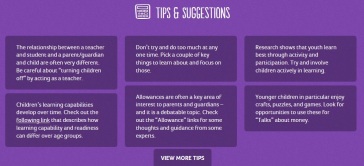To some individuals, becoming wealthy is the ultimate dream. Wealth provides the  means to living a life in which you do not have to worry about working and the price of basic goods. To build wealth, there are two routes to take: 1) buy a lottery ticket and hope for the best or 2) work hard and save and invest your money. Considering that there is a very small chance that we all can win the lottery, saving and investing money seems to be the next logical choice.
means to living a life in which you do not have to worry about working and the price of basic goods. To build wealth, there are two routes to take: 1) buy a lottery ticket and hope for the best or 2) work hard and save and invest your money. Considering that there is a very small chance that we all can win the lottery, saving and investing money seems to be the next logical choice.
Although saving and investing leads to the identical goal, there are very different avenues that some may get confused. Having a clear idea between the two different approaches can lead to being financially independent before the age of retirement.
Below are seven common questions along with answers that will assist in understanding the two avenues to build wealth.
What is the difference between saving and investing?
When you decide to save your money, you are putting your cash aside to grow slowly in a safe account where you can access whenever you please. (Please note: If it takes you more than 48 hours to have access to your money, then you have the cash in an investment). Investing entails using your money to buy an asset that will hopefully increase in value over a period of time. As an investor, you must understand the risks involved and the need to have a long term view of where your investments are going.
What kind of accounts can do I have to use to do both?
There are a variety of accounts that you can put money away in the future. The most common accounts that yield the most interests are high interest yield account and tax free savings accounts which can be obtained from any financial institution. Selecting which account and institution should be based on interest rates, service charges and financial advice. Investment vehicles can come in the form of guaranteed investment certificates (GICs), term deposits and mutual funds, stocks, bonds and real estate. To select the best long term investment, it is best to seek the advice and management of a financial planner.
How much should I save?
Once establishing a personal budget, you will be able to discover money that you can afford to put away after paying expenses. No matter the amount, you should place it in account on a regular basis without having intentions of spending the funds to earn compound interest.
How much should I invest?
The answer to this question can be found again in your budget and once you talk to a financial planner. The financial planner will take a look at your financial situation and assess how comfortable you are with risking money from an investing point of view. From this exercise, you will be given difference options that you must decide to put money away on consistent basis.
When can I have access to my money?
If you select to save your money, savings accounts are pretty liquid meaning that you should have easy access to the funds. If your money is not in a primary account such as a high interest account of a tax-free savings account, you will have wait a minimum of two business days for the funds to be deposited into your account. Money that has been invested is not as easy to access. Since the funds were used to purchase assets, time is needed to sell the assets at the right price to maximize the profit and process the sale by the financial services provider that you selected. Time that is needed to receive the funds in your account can vary depending on the type of the investment.
Do I have pay taxes on the money that I will earn?
Interest that is earned within a savings account is taxable with the exception of tax-free savings account (TFSA). Profit made from investment (known as capital gains) are taxable. Your financial services provider will provide you with the relevant documents to be included when filing your taxes. If you have your own registered retirement savings plan, remember that you are deferring paying your taxes until you retire.
Do I need a financial advisor to do both?
To establish a saving account, you do not need a financial advisor, however, if you wish to do both at the same time, you may want to obtain an advisor. Primarily, the advisor is in the best position to select the right mix of investments and saving instruments to place your money. Decisions are based on their knowledge of how the investment markets are performing and your risk tolerance.
Unless you are fortunate enough to inherit or win a lot of money, build wealth requires a plan, discipline and knowing where your money is going in the short and long term.








